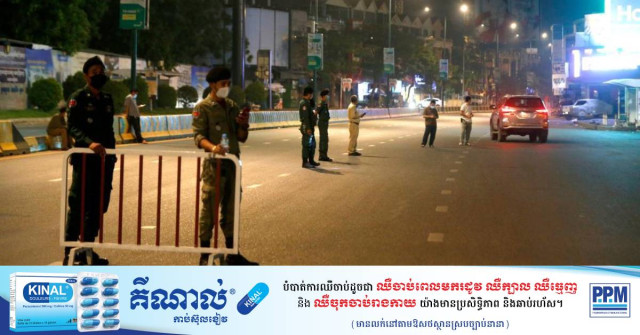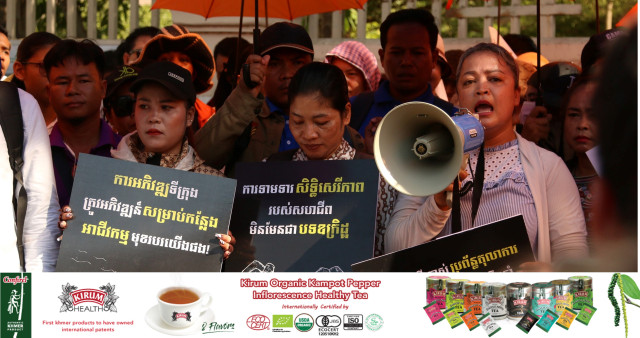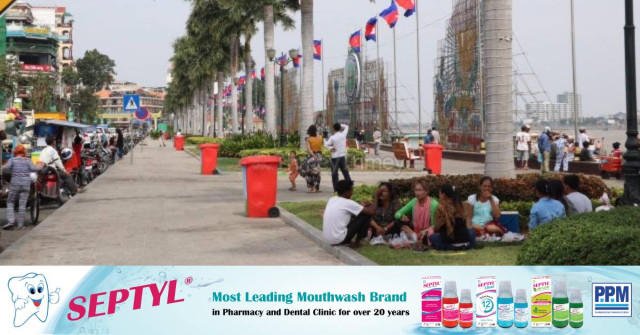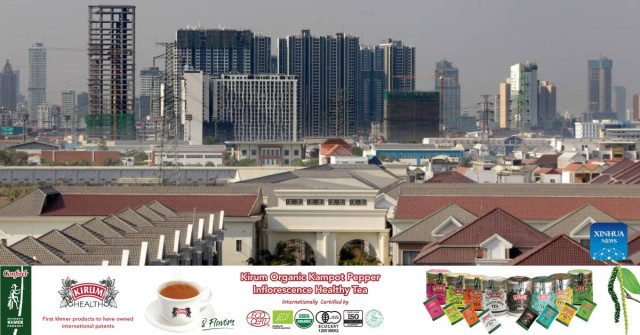Social Peace but also Peace of Mind: a Psychologist Urges Tragic Traffic Accident Settlements to Prevent Mental Impact

- By Teng Yalirozy
- January 31, 2024 7:10 PM
PHNOM PENH — “I feel overwhelmed when waiting at a red light.” “Now, I’m scared riding a motorbike.” “I must be extra vigilant.”
Tragic traffic accidents have become one of the most-discussed subjects in Phnom Penh. People share their fears as two deadly accidents have occurred in just one month, leaving several people dead.
Can the unconscious and constant fear of traffic accidents lead to mental problems in people? How badly are they affected, mentally and physically?
On Jan. 20, a drunk official from the Ministry of Economy and Finance hit and killed four people who were waiting at the traffic lights under the Russey Keo Bridge. Several others were injured. The CCTV (video surveillance) showed the Ford Ranger moving at an overly high speed and tragically running over several motorcycles at the red lights.
In December 2023, a Jeep Overland hit and killed a man on a motorcycle in Phnom Penh’s Tuol Kork district. Following the accident, the family of the deceased constantly showed profound grief. The wife has lost her husband, and the son has lost his father.
According to Cambodian psychologist Hoeur Sethul, fear of traffic accidents is one of the factors of mental problems, and a serious and major concern for Cambodian society.
Mental health encompasses factors such as self, environment, natural conditions, economic conditions, and family crisis beyond a purely psychological perspective, he said.
“When we talk about peace of mind, we also talk about social peace,” Sethul said. “If we live in a society where we are concerned about our safety, such as traffic safety, whether we like it or not, this always brings about psychological impact.”
“I think I have been traumatized”
Khim Chhinger, who is a resident of Phnom Penh, was hit in the back while waiting at a red light on her motorcycle. She was on her way to her aunt’s house. Luckily, she suffered no serious injury except for bruises. However, she was unconscious and hallucinated that she would die at the scene.
“I stopped using my motorbike for two weeks after the accident,” she said. “Since then, I have been anxious when on the road. This recent accident is like rubbing salt in the wound. I was so shocked and sorry for the victims. I keep recalling the accident that happened to me. If I had not been so lucky, I might have died. I am traumatized.”
Chheng Sophanith, a student in Phnom Penh who drives a car every day, said she used to be scared when driving at night that an accident might happen. With the recent accidents, she has been extra cautious, fearing someone might hit her or she hit others.
“Some cars violate the traffic lights while some motorcycles don’t have manners when driving,” she said. “It’s difficult and I am constantly afraid on the road. I am now extra vigilant when driving.”
As Hoeur Sethul explained, Car crash Obsessive-compulsive disorder (OCD) is the fear of being involved in a car accident, including inattention, improper lane changes, and injury to others. Since driving is essential in many people’s lives, an obsessive-compulsive fear of auto accidents may be crippling. It can be brought on by events or accidents, and people who are impacted may experience extreme pain and disability.
Hoeur Sethul, who is also president of the Cambodia Association for Counsellors & Psychologist (CACP), said that no matter how resilient an individual is, if the problem persists, it can have serious consequences.
“For example, today I hear tragic traffic accident news, and in the following one or two weeks, I hear about it again. I may be a little worried, but as we constantly hear the news about accidents, our level of impact will increase,” he said.
According to the Transcultural Psychological Organization, Cambodia faces a high risk of poor mental health, with 40 percent of the population experiencing psychological issues. Sethul estimates that about 2 million Cambodians suffer from various forms of trauma and psychological illness.
Post Trauma Stress Disorder (PTSD) of the deceased’s relatives
Originally from Pursat province, Nget Sreymao was among the four victims who died in a car accident on Jan. 20. She was the only child of a destitute family and pursuing higher education in Phnom Penh. She was a junior student majoring in architecture at the Royal University of Fine Arts (RUFA).
Nget Sreyroth, her sister, said her mother cannot move on and is still carrying Sreynet’s picture close to her chest. With her mother who is in shock and can barely control her emotions, the future seems uncertain for the family, she said, as Sreymao was the bright light and the hope of the family.
“After she died, I had to care most about my mom,” she said. “It was so sudden, we found it hard to control our emotions.”
According to Sethul, 100 percent of the families of victims will experience PSDT, but to what extent depends on the resilience level of each individual.
“Based on my experience with patients, they suffer the disorder for years,” he said. “Although they were helped through the therapy, it took years to fully recover.
“If we do not give them support and emotional counselling, the scars and wounds will stay with them for the rest of their lives.” Sethul said. “We dare not say how big or small the impact is.”
PTSD is a psychiatric disorder affecting mental, physical, social, and spiritual well-being, often resulting from experiences of traumatic events such as natural disasters, accidents, and violence.
Anxiety and PTSD are the most common mental illnesses in Cambodia, accounting for 40.0 percent and 28.4 percent of cases, respectively, with 53.4 percent of the population afflicted.
Losing Trust
Constant stressful situations can lead to decreased ability to handle stress, loss of trust in the authority, and punishment, encouraging similar actions without accountability, said Sethul.
“When we lose confidence in the governing of society, we lose confidence in the authorities,” he said. “Losing trust in the legal system is a problem that causes society to lose peace of mind.”
People could lose their faith in social justice, leading to the loss of self-confidence. “We will start to feel safe and comfortable when we see that traffic laws, social protection and justice are tightened: We start to feel comfortable again,” Sethul said.
Neang Samoun, 56, an official from the Ministry of Economy and Finance who hit and killed four people, has been charged with reckless driving, negligence and breaking the Law on Road Traffic by driving under influence of alcohol (0.54mg/l) and causing multiple deaths, according to a spokesperson for the Phnom Penh Municipal Court.
According to Hoeur Sethul, addressing trauma is crucial for social justice, requiring legal responsibility for perpetrators, livelihood support, and psychological treatment to address extreme injustice and ensure justice in society.
“We cannot ask the culprit to give back the lives of our loved ones, but at least, we want to see justice in society,” he said. “The perpetrators must be held legally responsible. Without social justice, there still is a sense of extreme injustice.”















